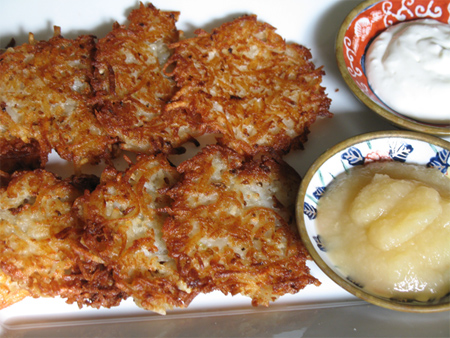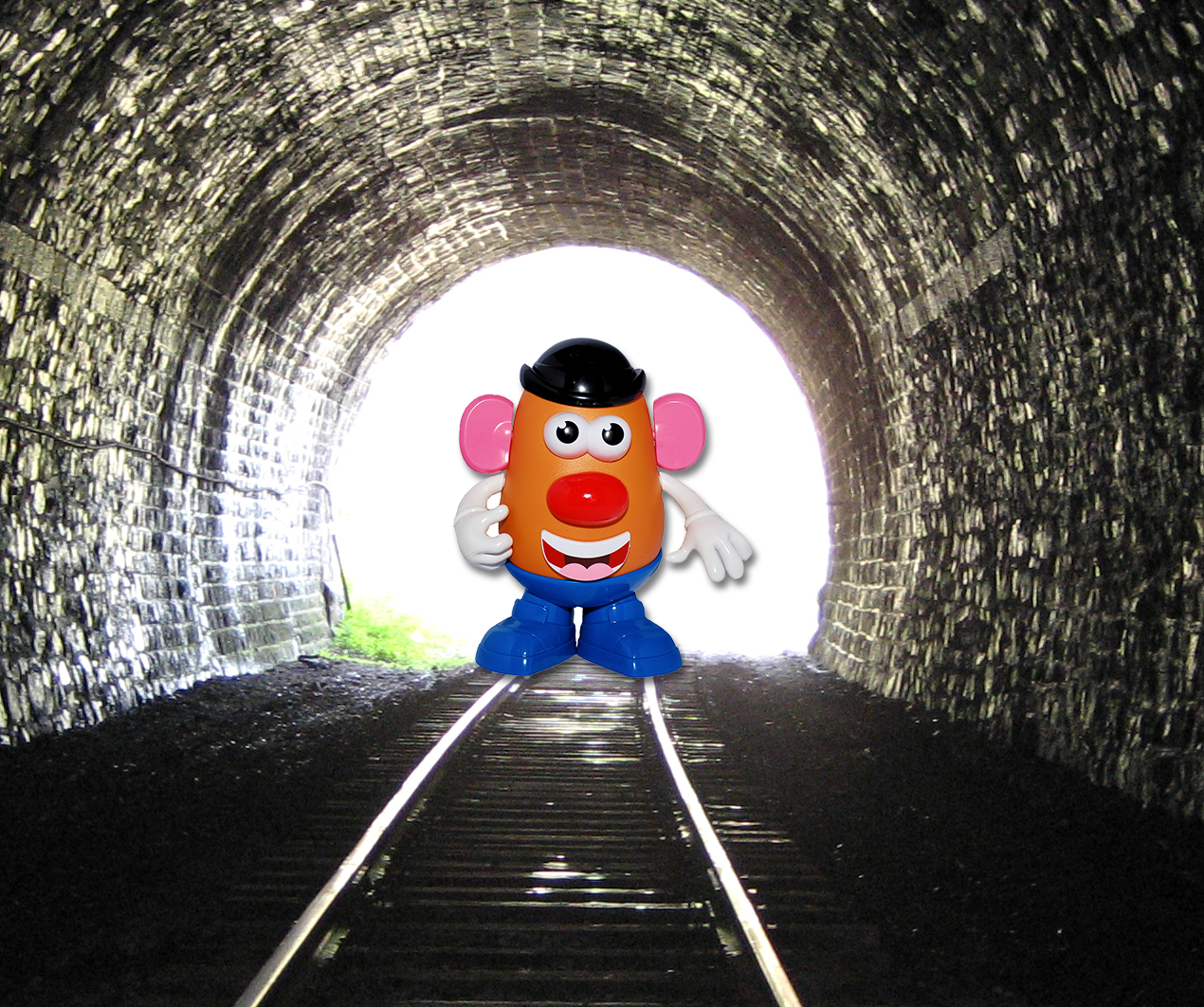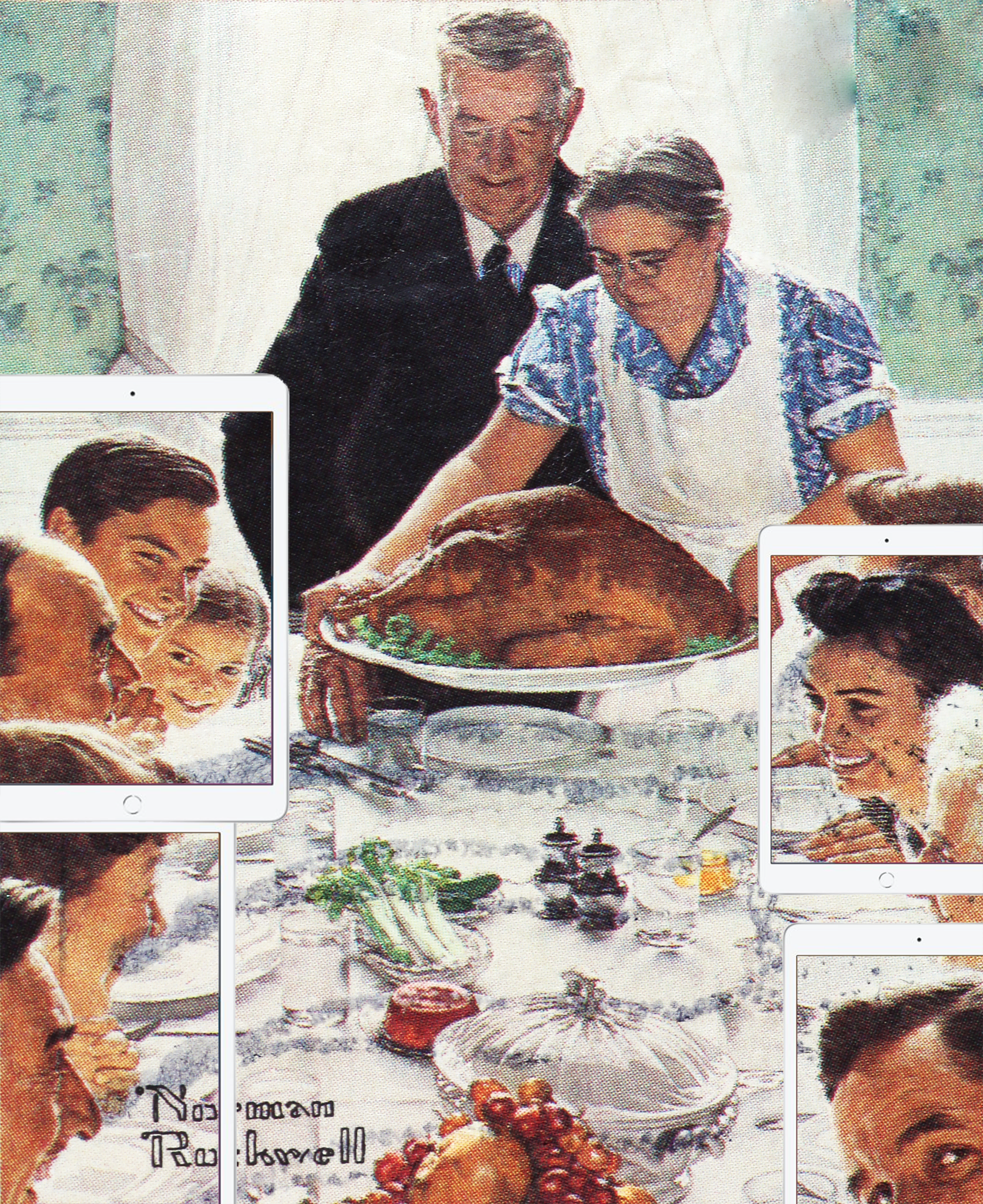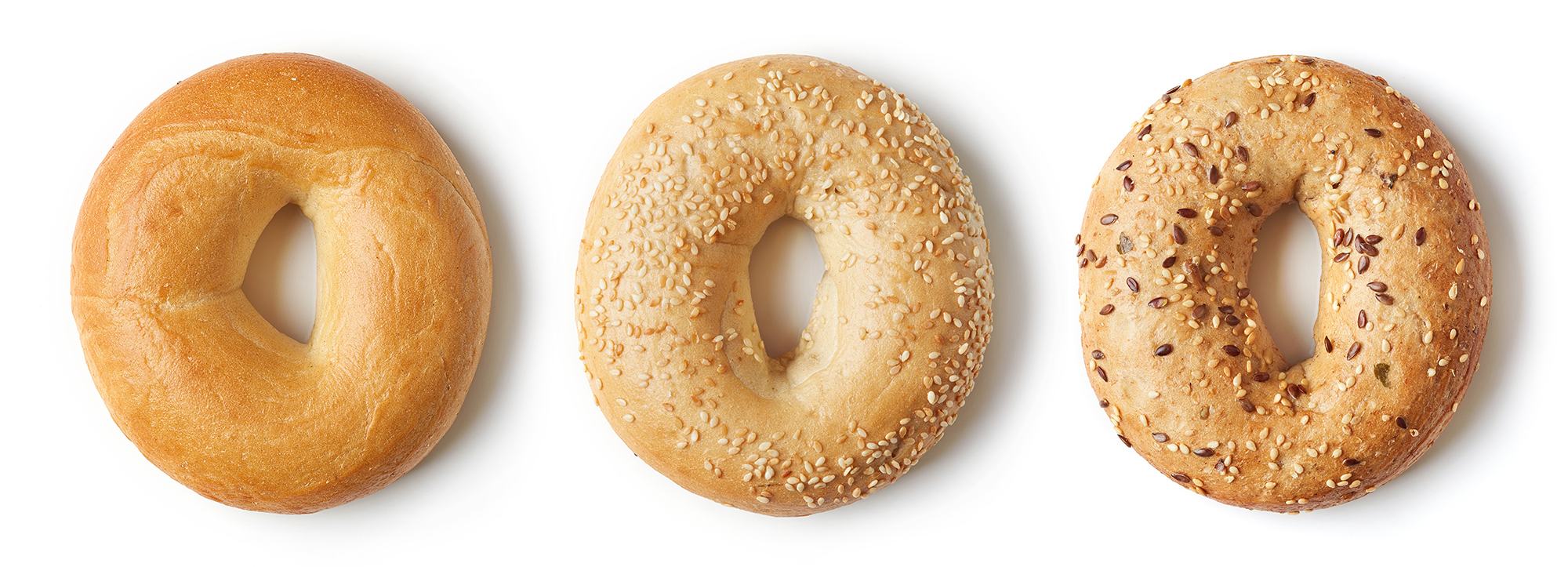Hanukkah, the Festival of Lights, arrived at sundown on Thursday, December 10th. No complaints this year about the holiday arriving too early or late. In my humble opinion, it arrived at the best possible moment. The eight nights of candle-lighting, ending on December 18th, along with the lights of Christmas, illuminate the longest nights of the year, and usher us to the Winter Solstice (December 21). Although unnoticeable at first, it quickens my step just to know that after this date, the days are gradually getting longer.
But perhaps most significant this year, the lights of Hanukkah coincide with the true light at the end of the tunnel, the arrival of the COVID vaccine, and brightened hopes for a better 2021.
So while it’s all about the light, let’s not forget the oil, and my favorite symbol of Hanukkah, the latke! And once again, I offer you my annual tribute to this humble delicacy.
Fried White Potatoes
As much as I gripe about the tedium of the holiday season, I must confess that there is one time-honored December tradition to which I happily succumb. As soon as the calendar informs me that we are about to embark on the eight days of Hanukkah, I am overtaken by a compulsive urge to make latkes. Completely forgetting the horror of clean-up, I am motivated by visions of the succulent food with the delicious, crispy brown edges.
As an aside, one must always consult the calendar to verify the arrival of this holiday, because, unlike Christmas, it has no specific designated date. Rather, from year to year, it tends to hover over the month, and its descent is always a surprise. Not being a student of the Hebrew calendar, its landing always appeared to me as being completely arbitrary, although I’m sure that’s not the case. But, like all Jewish holidays, it’s never on time. It’s either early or late. In fact, I can recall one year, in the not-so-distant past, when Hanukkah was so eager to arrive, it actually collided with Thanksgiving.
But back to latkes. For the uninitiated, a latke (pronounced lat kuh, with emphasis on the lat) may appear to be nothing more than a fried potato pancake. But in truth, the little latke is so much more. It’s a fried potato pancake with a soul. The making and the eating is a treat for all the senses. Therefore, once a year, I say throw food caution to the wind, swallow an extra statin, and prepare to enjoy starch cooked in oil.
Actually, as a holiday tradition, it’s all about the oil. Cooking with oil is a commemoration of the ravaged temple and the miracle of the small amount of olive oil that kept the eternal light burning for eight days, instead of just one. But it is not my intention here to retell the Hanukkah story. If one is interested, one can always consult Rabbi Google. Rather, it is to praise the latke.
Latke. I even love the sound of the word, which I find somewhat sensual. Uttered slowly and softly, letting the tip of the tongue rise to plant a gentle caress just behind the teeth, could there be a more loving term of endearment? Come to me, my little latke.
But like all things Jewish, the proper preparation of latkes is not without differences of opinion. Traditionalists claim that the only authentic way to make them is to grate the potatoes by hand. Since I don’t believe that a preferred methodology is discussed in any biblical text, I stand with those who shred by food processor. The outcome is just as good, and one’s knuckles remain intact. (Contrary to popular belief, knuckle blood is really not the secret ingredient in a good latke.)
I prefer to get my tactile fix from squeezing the liquid from the shredded potatoes, then combining the other ingredients with my 10 digits. Want to release your inner child and relive the early developmental gratification of playing with your food? There’s nothing like being up to your elbows in potatoes, onions, eggs, and flour (or matzoh meal if you prefer).
And what can compare with the aroma of frying the latke? Nothing, except for eating the latke. Garnish as you like – apple sauce, sour cream, even caviar. And voila! The dull potato has been elevated into a luxurious treat.

And I say fie on the spoilers who attempt to ruin the entire experience by suggesting healthy alternatives. Like baking, instead of frying. Or substituting other vegetables for the potato. A kale and cauliflower latke? Really?
And don’t even think about using a prepared mix!
I confess there is a downside to this otherwise joyous experience. I must now begin to repair the damage that used to be my kitchen. But not even the splotches of potato starch that have landed on my floor and counters, and the splattered oil on my stove, can detract from my satisfaction.
And the secondary benefit? The memory of the experience that comes from the lingering odor of potatoes cooked in oil which will permeate the house long after the eight days have run their course.
And once everything is nice and tidy, I know I will forget the mess and do it all over again next year. Whenever Hanukkah decides to arrive.






I absolutely LOVE Latkes ….will eat them until turn into Mrs. PotatoHead…however, I loathe making them! We will see which feeling overwhelms the other soon enough.
However, I did not know the story about the oil. Thank you for giving me some new knowledge.
Have a wonderful holiday. (I like mine with gobs of sour cream!)
Love sour cream!
Don’t know if you remember the movie ‘La Grande Bouffe’, but there should be a new one called La Grande Latke that takes place in one of the Jewish retirement communities in Florida. I’m not sure of the gender of the noun, latke.
Fine, as long as I’m not the one cooking La Grande Latke, whatever its gender!
I remember an evening eating your amazing latkes, and I remember the OMG what happened to my kitchen part! All wonderful and festive. :))
Made them the other night. Three left over in the freezer. I’m good ’til next year!